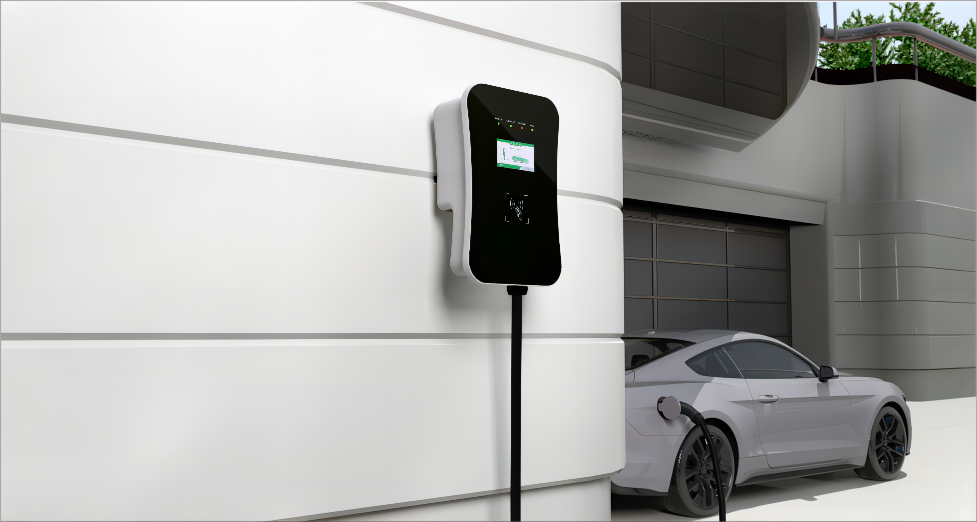It's important to note that the advantages and features of AC EV chargers may vary depending on the specific charger model and manufacturer. It's advisable to consider your specific requirements and consult with a professional while choosing an AC EV charger.
Standard:
SAE Standard / IEC StandardConnector type:
Type 1 / Type 2Connector Mechanical Operating Life:
≥10000 times
In Europe, 70% of EV charging occurs at home or at work, where charging outlets have lower power output and longer charging durations, resulting in lower costs. This makes charging at home and at work the most economical option for EV customers. However, providing charging solutions for residents living in apartment buildings, which represent 46% of EU inhabitants, can be challenging, as reported in ChargeUp Europe's State of the Industry 2022 publication. The main obstacle is the shared parking garages, which receive electricity from the common area meter, making it difficult to install personal EV chargers. In addition, local regulations often prohibit direct connections between charging stations in parking garages and corresponding flats. The ongoing revision of the Energy Performance of Buildings Directive (EPBD) presents an opportunity to address this issue.
Almost 80% of residential EV chargers in Europe (90% if we include Benelux) were sold in DACH (Germany, Austria, Switzerland) and France corresponding with the existing distribution of EVs in these countries.
Residential EV chargers are AC chargers with charging power between 7.4 and 22 kW. Each charging point receives more than four charging sessions per week, totaling an average of 100 kWh/week. More than 95% of home charging sessions take place between 12 PM and 8 AM.

What does our EV charger include?
1.Charging Unit: This is the main device that provides the electrical power to charge the electric vehicle (EV).
2.Connector/Cable: The EV charger is equipped with a connector or cable that is compatible with the charging port of the EV. Different types of connectors exist, such as Type 1 (SAE J1772), Type 2 (IEC 62196), CHAdeMO, CCS (Combo), and Tesla's proprietary connector.
3.Control Panel: The charger may have a control panel that allows users to select charging options, monitor the charging status, and adjust settings like charging current or charging schedule.
4.Power Management System: The charger's power management system regulates the power flow to the EV, ensuring efficient and safe charging.
5.Communication Interface: Some EV chargers include communication capabilities to interact with external systems.
6.Safety Features: EV chargers incorporate safety mechanisms to protect against electrical faults, overcurrent, short circuits, and overheating.

How does EV chargers charge cars?
1.Connector and Cable: The charger is equipped with a connector and cable that physically connect the charger to the vehicle's charging port.
2.Charging Station: The charging station is the main unit that houses the electronics and controls of the charger.
3.Voltage and Current Regulation: The charging station regulates the voltage and current to ensure safe and efficient charging.
4.Communication Interface: Some EV chargers include communication interfaces such as Ethernet, Wi-Fi, or cellular connectivity.
5.Control Panel: The charger may have a control panel or a user interface that allows the driver or operator to interact with the charger.
6.Safety Features: EV chargers incorporate various safety features to protect the user, the vehicle, and the charger itself.

How to monitor our EV chargers?
1- Centralized Monitoring System: EV chargers can be connected to a centralized monitoring system that allows operators or administrators to remotely monitor the charging status, energy consumption, and any faults or abnormalities of the chargers.
2- Mobile Applications: Many EV charger manufacturers provide mobile applications that allow users to monitor and control the charging process.
3- Web Portals: Some EV charging networks offer web portals where users can log in to monitor their charging sessions, view charging history, and access other relevant information.
4- RFID or NFC Card Integration: EV chargers can be equipped with RFID (Radio-Frequency Identification) or NFC (Near Field Communication) card readers.
5- Display Screens: Many EV chargers have built-in display screens that show real-time charging information, such as charging power, charging time
Monitoring EV chargers can involve tracking their usage, availability, power consumption, and charging status.
This can be done through software systems that collect data from the charger controllers, communication interfaces, or sensors embedded within the chargers.
The collected information can be accessed and analyzed through a central management platform or mobile applications, providing insights, diagnostics, and control over the charging infrastructure.
FAQs:
Q1: Do you support OEM/ODM?
A:Definitely, OEM&ODM service is supported with a certain quantity,including customize logo,package and label;
Q2: What's the production time?
A: The production time is normally 15 working days. but we will always prepare some stocks for popular models.
Q3: Can you provide DDP service?
A:Yes, if you are a personal customer and don't want to deal with the customs, we can provide DDP service to your address.
Q4: What about the warranty and how to claim?
A: Warranty period are 5 years since you receive the product, our professional after-sales team will deal with all warranty issues.